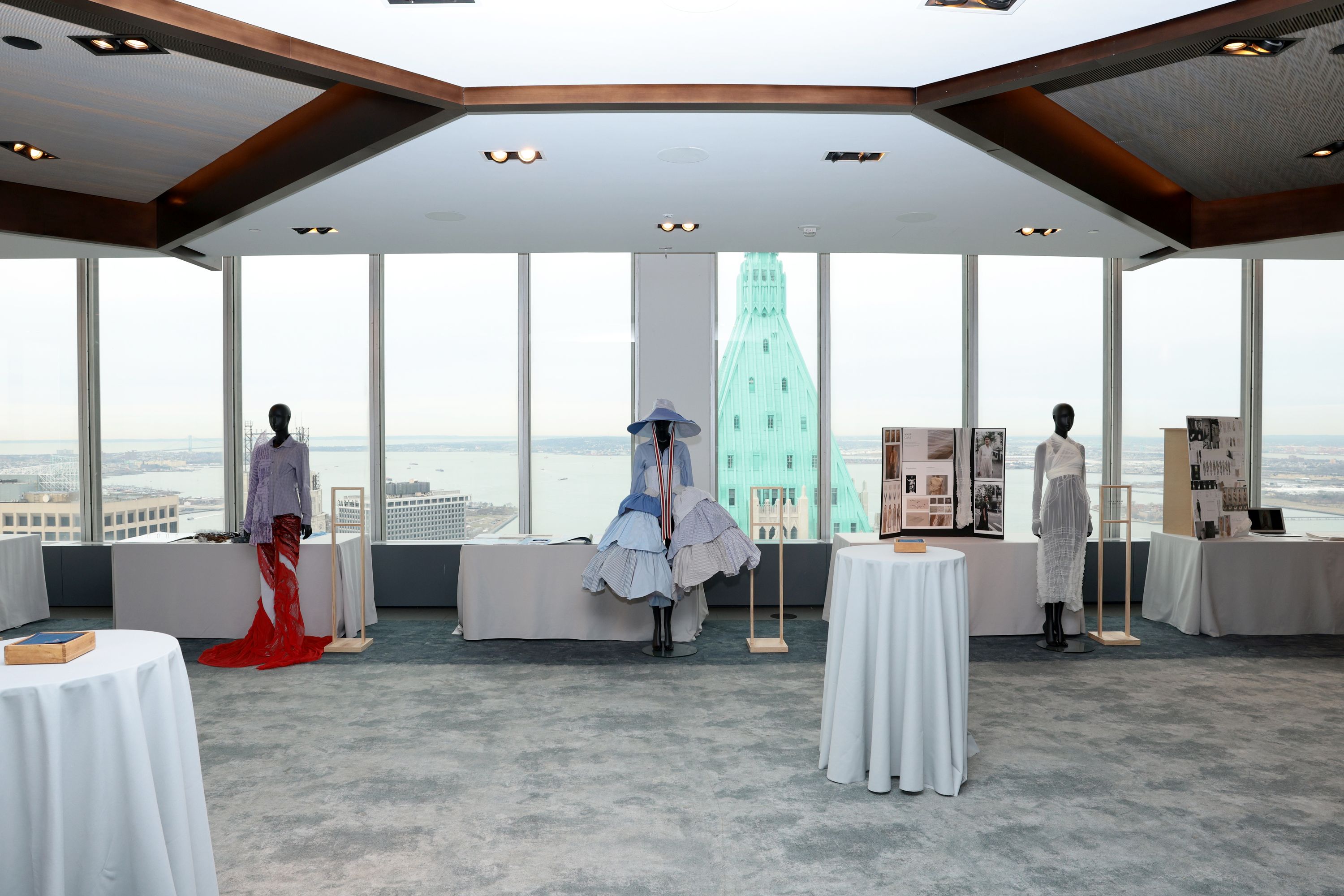
For Dr. Joyce Brown, President of FIT, and climate activist Saad Amer, mentoring the next generation means encouraging others to have tough conversations around sustainability and fashion. During the "Mentorship Mindset" panel, the two sat down in conversation with Marie Claire's Style Director Sara Holzman for the second Fashion Our Future event, an initiative between Marie Claire and Kering that brings together experts, activists, and public figures to discuss how to create a more eco-friendly fashion industry and encourage actionable change.
Through his work as a sustainability activist, Amer has stepped into the role of a mentor for the younger generations. For him, reframing our conversations around fashion as a whole is crucial to making positive changes in the industry. "I think we've gotten to a world where we don't think fully about what fashion is and what fashion means," he explained. "If fashion is about expression, what does it mean when our clothes are polluting rivers, deforesting forests, ruining the atmosphere, emitting carbon, and being made by women of color enslaved abroad?" When we reframe conversations around fashion to understand its system as a whole, Amer said, that's when we can feel empowered to make changes.
Meanwhile, Dr. Brown is quite literally tasked with mentoring the future generations of the fashion industry in her role as FIT's President. At FIT, sustainability is embedded into the fashion and design curriculum as a way to educate the next generation of business and design leaders. To Dr. Brown, teaching sustainability practices to students is "part of a whole." She explained, "It's got to be in our curriculum and it's got to be touching on both design and business and the environment and the impact and the overall sociocultural effect of design and fashion."
Mentorship on sustainability doesn't just apply to the younger generations, but also to large businesses. "I also tell companies a lot that whether you want to change or not, you have to because the reality of the situation is climate change is occurring," Amer said. He added that companies need to enact changes now not just to meet new policies such as the Fashion Act or FABRIC Act, but also to ensure they meet the new consumer dynamics on sustainability.

Nowadays, consumers care more about sustainability than ever before and it's this attitude that matters to big businesses, added Dr. Brown. "Your marketing matters, your advertising matters, your production, your sizes, your colors, your textiles," she said. "So it's a movement and it's gaining legs because of the awareness of the consumer."
But sometimes, as Holzman remarked, the fashion and business communities do not interact with each other, so how can we mentor these separate communities into coming together for a better path forward? Amer said it's all about intersectionality. "It is understanding that each of these things don't exist in silos," he explained. Whether it's the land we use or the physical waste of the industry, Amer said that the inputs and outputs of the fashion industry directly relate to climate, and it's that intersectionality is what needs to be talked about. "There's got to be this conversation that understands the impact of one with the other," added Dr. Brown.
As mentors, another way to empower people to ask hard questions about their fashion choices is to open up the conversation between generations. Amer explained, "I think that it's so essential to have intergenerational dialogues because I think that there's so much wisdom that we stand to gain from listening to older generations." He believes that the younger generation has "tenacity" and is unwilling to compromise on what they want. "We need that in this current moment where so many of our systems are reliant explicitly on these systems of extraction and this desire to profit at all costs," Amer said.
All in all, both mentors are optimistic about the future of fashion. Amer recounted a recent march he participated in across the Brooklyn Bridge with thousands of other climate activists and pointed to this event as a symbol of hope. "When I see that type of energy and that type of tenacity from people to actually get out in the streets and organize and mobilize en masse, I know change can happen," he said. "Every single institution, whether it is a company, a government, a university, I think they're all starting to understand."
For Dr. Brown, her hope for a more eco-friendly future comes from the people she works with every day: her students. "What gives me hope and optimism are the students and the young people that live with that muse that sits right on their shoulder and doesn't let them forget what their mission is and what their purpose is," Dr. Brown explained. "I think the hope lies really in young people who have talent and creativity and belief, and they're only bound by their own imagination."







